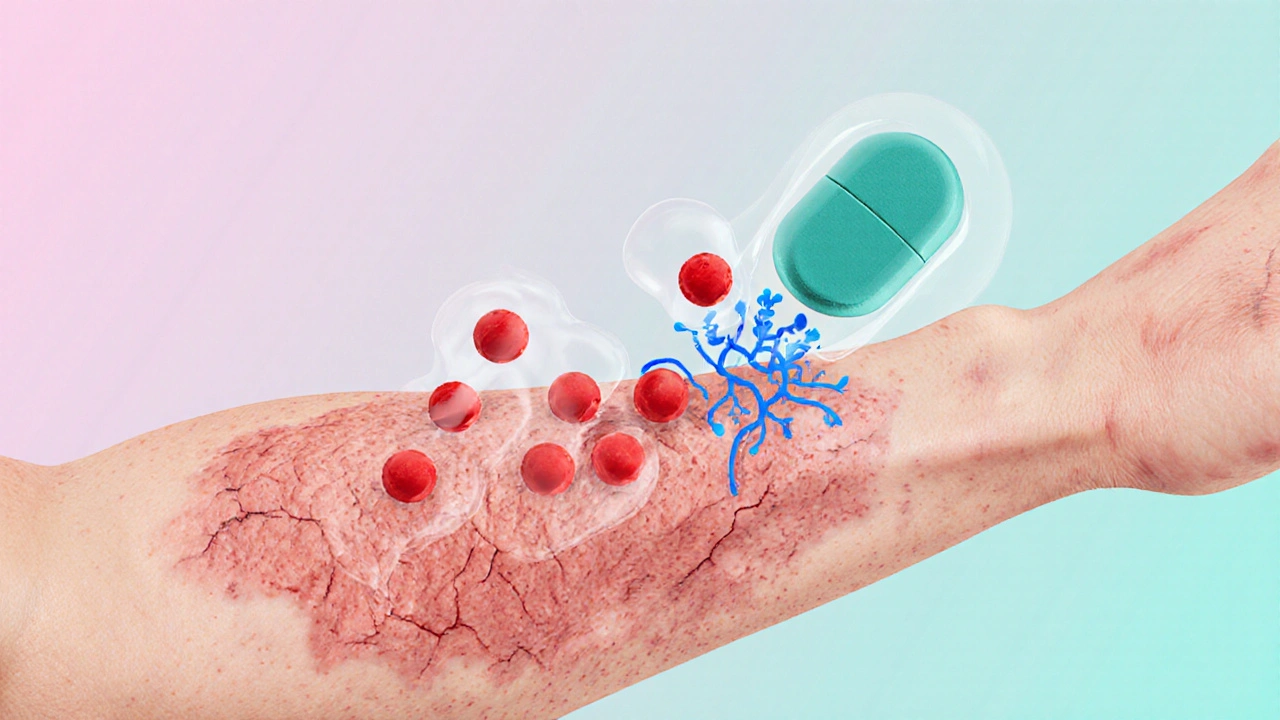Antihistamines for Eczema: What Works, What to Avoid
When it comes to antihistamines for eczema, oral medications that block histamine, a chemical released during allergic reactions. Also known as histamine blockers, they're often prescribed to ease the relentless itching that comes with eczema—especially at night. But here’s the truth: most antihistamines don’t fix the root cause of eczema. They just mask the symptom. And not all of them are safe for long-term use.
There are two main types: first-generation and second-generation. First-gen ones like diphenhydramine (Benadryl) and hydroxyzine cross the blood-brain barrier, making you drowsy. That’s why doctors sometimes recommend them at bedtime—they help you sleep through the itch. But they also cause dry mouth, blurred vision, and brain fog. For older adults, studies show these drugs increase dementia risk when used regularly. Second-gen antihistamines like cetirizine (Zyrtec) and loratadine (Claritin) are less sedating, but research shows they barely help with eczema itch at all. A 2021 review in the British Journal of Dermatology found no strong evidence that second-gen antihistamines reduce eczema severity.
The real issue? Eczema isn’t an allergy. It’s a skin barrier problem with immune system overactivity. Histamine plays a role in itching, but it’s not the main driver. That’s why popping antihistamines often feels like putting a bandage on a leaky pipe. You’re not fixing the crack—you’re just trying to soak up the drip. Topical steroids, moisturizers with ceramides, and newer biologics like dupilumab actually repair the skin. Antihistamines? They’re a temporary fix at best.
Still, if your nights are ruined by scratching, a low-dose first-gen antihistamine might help you rest. Just don’t rely on it daily. Talk to your doctor about alternatives like cool compresses, oatmeal baths, or even low-dose tricyclic antidepressants like amitriptyline—which aren’t antihistamines but can calm nerve-related itching. And avoid combining antihistamines with other anticholinergic drugs. That combo, as seen in posts about amitriptyline and diphenhydramine, can overload your system and lead to serious side effects.
What you’ll find below are real discussions from people who’ve tried antihistamines for eczema, the risks they didn’t know about, and what actually helped them. No fluff. Just facts, experiences, and alternatives that work.
Antihistamines in Eczema Care: Benefits, Risks & Tips
Explore how antihistamines can ease eczema itch, when to use them, the best types, dosing tips, safety concerns, and how they fit with other skin treatments.
